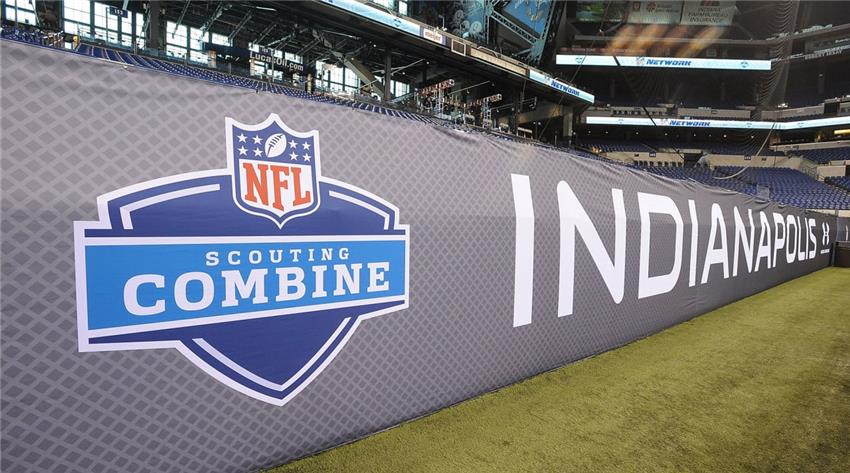
What Most Determines Success in the NFL - College Production or Athletic Ability? An In-Depth Analysis
Scouts, coaches, and general managers evaluate NFL prospects based on a myriad of factors, with college production and athletic ability being two of the most significant criteria. We'll try and explore the role of statistics from the combine and college performance to determine which of these has a greater impact on a player's ultimate success.
The NFL combine is a week-long showcase where college football players undergo various physical and mental tests in front of NFL coaches, general managers, and scouts. Athletic ability is primarily assessed through drills that measure speed, agility, strength, and explosiveness, such as the 40-yard dash, vertical jump, broad jump, and bench press. Although these physical attributes are crucial for success in the NFL, not all highly athletic players flourish in the league, prompting questions about the true importance of these metrics.
To gain a deeper understanding of the correlation between athletic ability and NFL success, we can examine the careers of several notable players. For instance, wide receiver D.K. Metcalf boasted an exceptional combine performance in 2019, demonstrating elite athleticism in various drills. However, Metcalf's college production at Ole Miss was comparatively modest, leaving some doubts about his potential in the NFL. Despite this, Metcalf has quickly established himself as one of the league's most dominant wide receivers, indicating that athletic ability can indeed be a significant predictor of NFL success.
Conversely, college production is also a crucial factor in determining a player's potential success in the NFL. College statistics, such as total yards, touchdowns, tackles, and interceptions, offer valuable insights into a player's on-field performance and ability to contribute to their team. While a strong college career often translates to a successful NFL transition, some players with impressive college statistics fail to achieve the same level of success at the professional level, highlighting the complex nature of this relationship.
Running back Montee Ball serves as an example of a player with huge college production who struggled in the NFL. During his time at the University of Wisconsin, Ball racked up numerous awards and broke several records, including the most career rushing touchdowns in the NCAA Division I FBS. Despite his remarkable college career, Ball's NFL tenure was short-lived, as he was unable to replicate his college success at the professional level.
To provide a more comprehensive analysis of the impact of college production and athletic ability on NFL success, we can turn to statistical research. A study conducted by Pro Football Focus examined the relationship between wide receivers' college production and their NFL success from 2014 to 2018. The researchers found a moderate correlation between college performance (measured by dominator rating, which calculates a player's share of receiving yards and touchdowns) and NFL success, indicating that college production is indeed a significant predictor of professional performance.
Another study, led by Dr. Timothy A. Rapp of Towson University, investigated the relationship between NFL combine results and draft position for various positions from 2000 to 2010. The research showed that while certain combine drills, such as the 40-yard dash and vertical jump, correlated with draft position, these metrics did not consistently predict NFL success across all positions. This finding suggests that athletic ability, as measured by combine results, is an important factor but not the sole determinant of a player's future performance in the league.
As a rsult of this information it is essential to consider additional real-world examples to further investigate the relationship between college production, athletic ability, and NFL success. Consider quarterback Russell Wilson, who had a stellar college career at both North Carolina State University and the University of Wisconsin. Despite his impressive college statistics, Wilson's relatively short stature and modest combine results led to concerns about his ability to succeed in the NFL. However, since joining the Seattle Seahawks in 2012, Wilson has become one of the league's premier quarterbacks, proving that a combination of college production and intangible factors, such as leadership and determination, can outweigh perceived athletic limitations.
Another obvious example is defensive end J.J. Watt, who played for the University of Wisconsin and demonstrated exceptional athletic ability at the NFL combine. Watt's combination of college production and athleticism made him a top draft pick, and he has since become one of the most dominant defensive players in NFL history. Watt's success demonstrates that, in certain cases, possessing both outstanding college production and superior athletic ability can lead to an extraordinary professional career.
However, we also need to recognize that other factors, such as coaching, team quality, and adaptability to the professional level, significantly impact a player's success in the NFL. Patrick Mahomes, for example, had a productive college career at Texas Tech University but was not widely regarded as a top prospect due to concerns about his mechanics and decision-making. Since joining the Kansas City Chiefs, Mahomes has thrived under head coach Andy Reid's tutelage, becoming an MVP and Super Bowl champion. Mahomes' meteoric rise underscores the importance of coaching and player development in determining NFL success, even when accounting for college production and athletic ability.
Both college production and athletic ability play crucial roles in predicting a player's potential success in the NFL. However, as demonstrated through various examples and statistical research, neither factor alone guarantees success at the professional level. Instead, the most successful NFL players tend to possess a combination of college production, athletic ability, and intangible qualities, such as work ethic, adaptability, and the ability to excel under pressure. Furthermore, factors such as coaching, team quality, and player development can significantly influence the trajectory of a player's NFL career, emphasizing the multifaceted nature of success in professional football.
